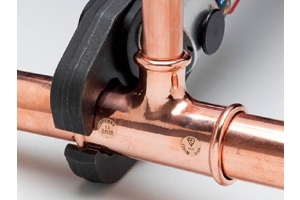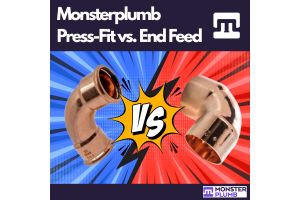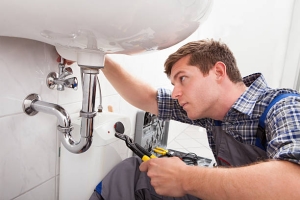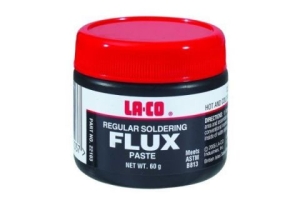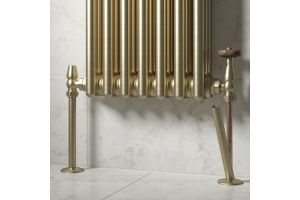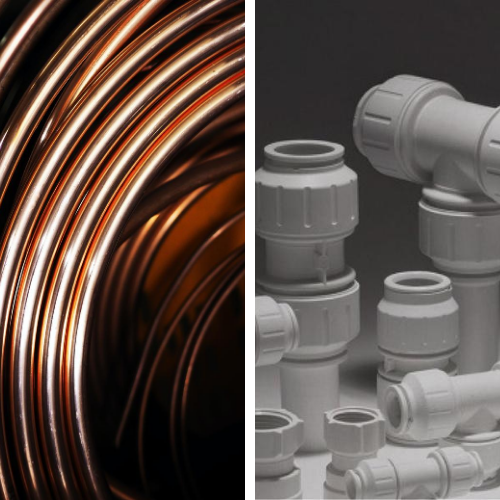
If ever there was a topic to ruffle plumbers feathers, it’s the age old debate of copper pipes vs plastic pipes. Some swear by copper and its ability to stand the test of time, whereas others prefer the speed and ease of using plastic piping. But which are best for your home? Well, our team of experts are here to thrash it out.
Benefits of Plastic Piping?
Plastic piping is fast becoming the go to choice of modern plumbing and it’s not hard to see why with a range of benefits including:
- It doesn’t corrode over time.
- It’s reduced installation time by around 40%.
- Push-fit fittings simply lock (or unlock incase of a problem) into place.
- Ever evolving technology makes them stronger, quicker and more reliable.
- They are cheaper to buy.
- They are thicker, therefore quieter.
- Less likely to freeze.
- It’s lightweight yet extremely durable.
Cons
While the benefits far outweigh the disadvantages, there are a few points to consider.
- It is less flexible at the joints.
- It may crack or become brittle.
- It may not fit into tighter spaces.
Benefits of Copper Piping?
Before plastic there was copper, unrivalled it may be, but what are the pros and cons of the traditional piping?
- It is more flexible than plastic.
- It can be recycled.
- Easier to fit into smaller spaces.
- It is a naturally occurring metal.
- Doesn’t contain any chemicals in comparison to PVC.
Cons
- It requires soldering to install, limiting it to professional use only.
- It’s noisier with high pressure systems.
- It’s more expensive.
- It takes longer to install.
Can you mix plastic and copper plumbing?
Absolutely. Infact, manufacturers such as JG Speedfit were designed to do just that by connecting any two pipes, no matter the material, making both plastic fittings and copper fittings compatible.
Should you replace copper pipes with plastic?
Not necessarily. If you are currently running with copper pipes and there are no issues then great, leave them as they are. It’s only if or when they need replacing that you may wish to review what you choose to install.
What is the life expectancy of copper plumbing?
If cared for and installed correctly, copper piping can last up to 50 years. They are susceptible to pinhole leaks and corrosion as the inners become weaker over time so if your pipes are old or require constant repair then you may want to consider switching to plastic piping. But for copper pipe maintenance, see our previous blog on How To Clean Copper Pipes.
What's The Verdict?
While we may have seen a decline in copper pipes over recent years, it is still a solid choice amongst many plumbers and comes down to personal preference in most cases. But there’s no denying that the world is changing and plastic piping is gathering momentum in popularity. Hailed to be stronger, quicker and more efficient thanks to modern technology, the future signals a move to plastic.
 4.9+ Rating
4.9+ Rating 


